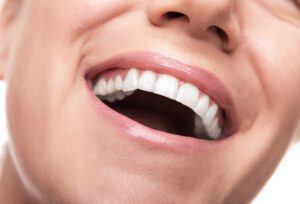Do you wonder why you feel tooth sensitivity when you’re consuming hot and cold food and beverages? Yes, it indicates a problem with a tooth, and most people are also unaware of what causes tooth sensitivity at hot and cold temperatures.
So, what causes hot and cold sensitivity on teeth?
When you consume hot and cold food and drink, the discomfort will be felt a lot more in the mouth. The first indication of this is that your enamel isn’t as strong enough as it should be. Enamel erosion is the process where the loss of tooth enamel is caused by acid. Your enamel is the hardest substance in the body, and acts as a protective layer to your smile and protects the underlying dentin.
When the enamel wears down, the underlying dentin becomes exposed, and this causes your teeth to become extremely sensitive to certain temperatures. The pain in the mouth can be minor or severe, particularly when you bite down on food and consume beverages.

What Could Tooth Sensitivity Indicate?
Hot and cold sensitivity can indicate a few things. First, if the discomfort lasts for a number of seconds immediately after eating and drinking, it is likely that your tooth is going through minor tooth decay, which is a dental cavity or minor gum recession. This does not exactly indicate a dental emergency but will require a dentist to look at it as soon as possible.
If the discomfort lasts for longer, then it is a sign of permanent damage to the internal structure of the tooth, or the pulp. This also indicates major tooth decay, a fracture or a serious infection. In this instance, it is likely the tooth needs to be looked at in an emergency. It could also mean the tooth may need to be extracted. The pain can become almost unbearable.
Hot sensitivity is more common if you consume a diet that is highly acidic. For example, drinking sodas, alcohol or carbonated drinks regularly. Again, severe toothache and infection will occur the more you drink them.

How Can I Reduce It?
Major tooth decay will require an emergency appointment at the dentist. If the sensitivity is common but comes and goes, it is a sign of minor decay, which can be reduced. Follow these steps:
- Avoid acidic and sugary food and drink and replace it with water and foods that strengthen your tooth enamel
- Be gentle when brushing your teeth and avoid using toothpastes that contain mild-abrasives
- Brushing your teeth with sensitivity toothpastes
- Regularly visit the dentist for check-ups when called in
If you’re experiencing tooth sensitivity, tell us right away and let us help you. Click here to contact us for an appointment.





